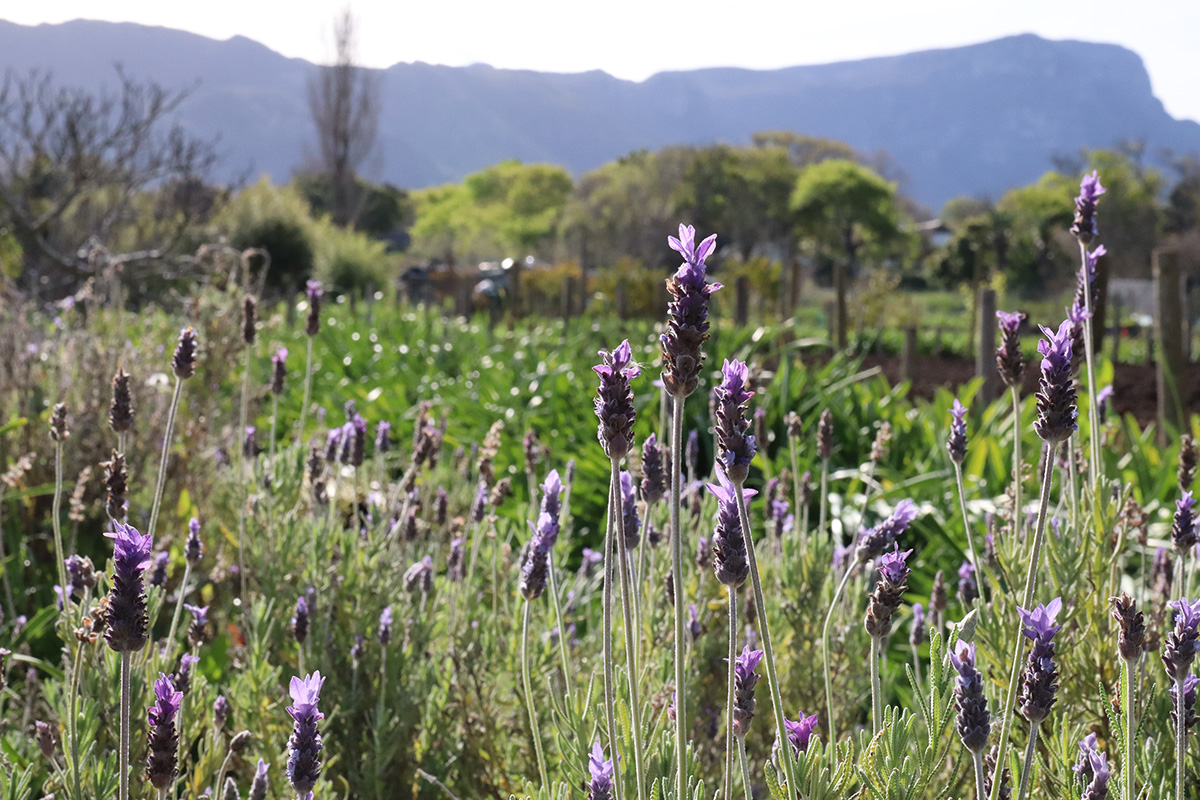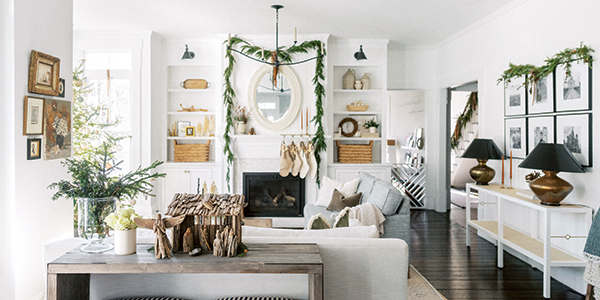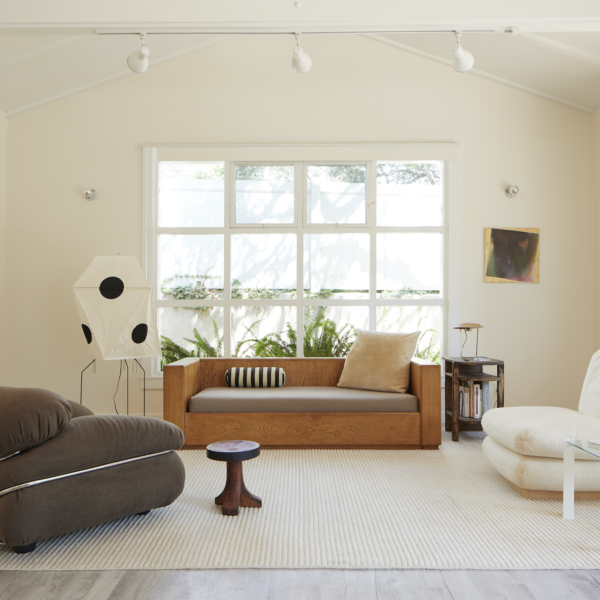The spring sunshine in Cape Town has a brittle quality, where periods of intense clarity are suddenly muted by bursts of rain. Moments later the sky clears, Table Mountain reappears from the shrouding clouds, and the world sparkles. At Jaftha’s Flower Farm in Constantia, fields of ranunculus and stocks are in bloom, posies of violets are sold by the delicate bunch, and long-stemmed, fragrant freesias are bought by customers who bump down Brounger Road (freshly potholed by a sodden winter) to the small, fifth-generation farm. (Learn the history of the farm in our previous story.) Jaftha’s is a destination for any flower-loving visitor to the city, and for me, recently, the welcoming farm offered floral comfort during a visit from New York City to see my unwell mother.
Photography by Marie Viljoen.
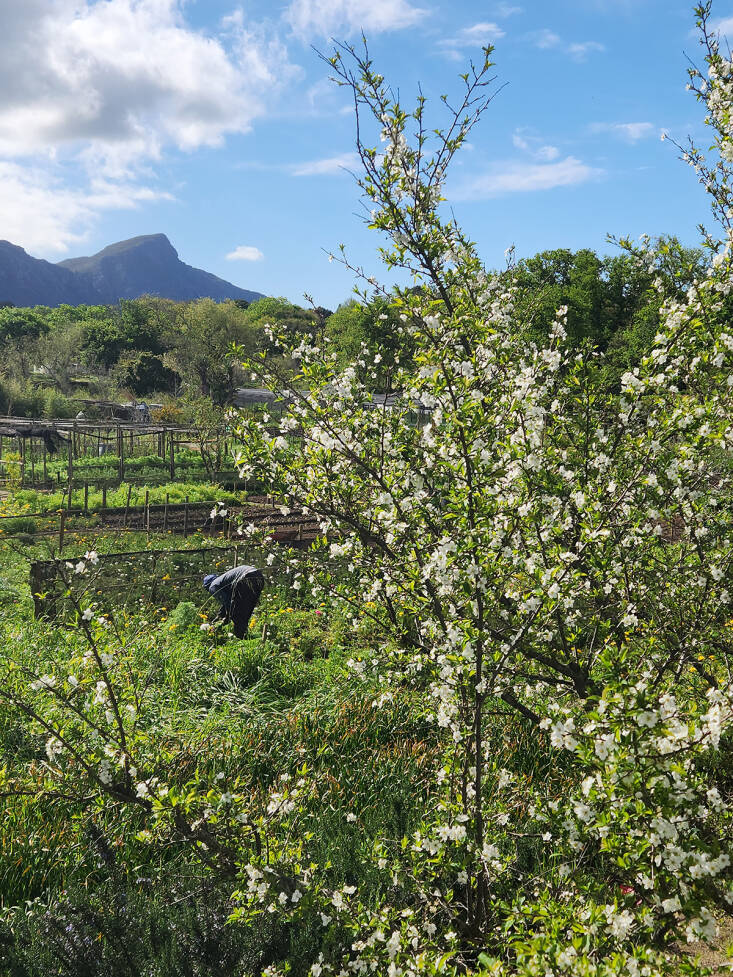
I last visited Jaftha’s Flower Farm in summer, when its rows of plum trees were dropping ripe fruit and the fields were filled with the dahlias for which the Jaftha family is famous. Now, in early spring, the fruit trees are in bloom and the dahlia tubers that were lifted before the Cape’s wet winter are about to be planted again in the rich black soil of the valley.
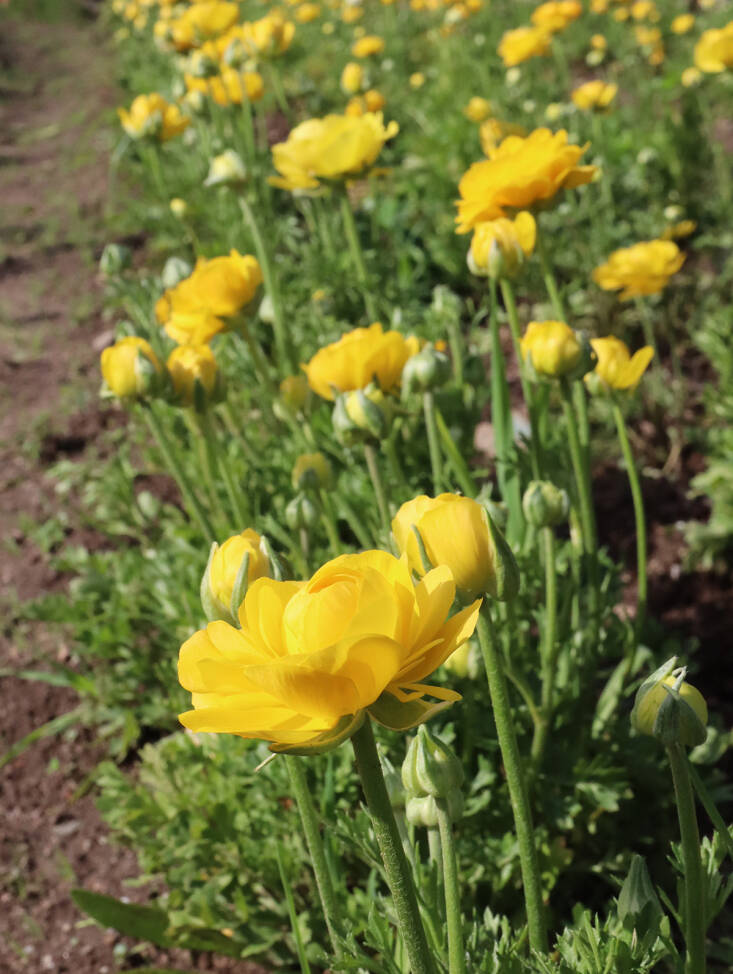
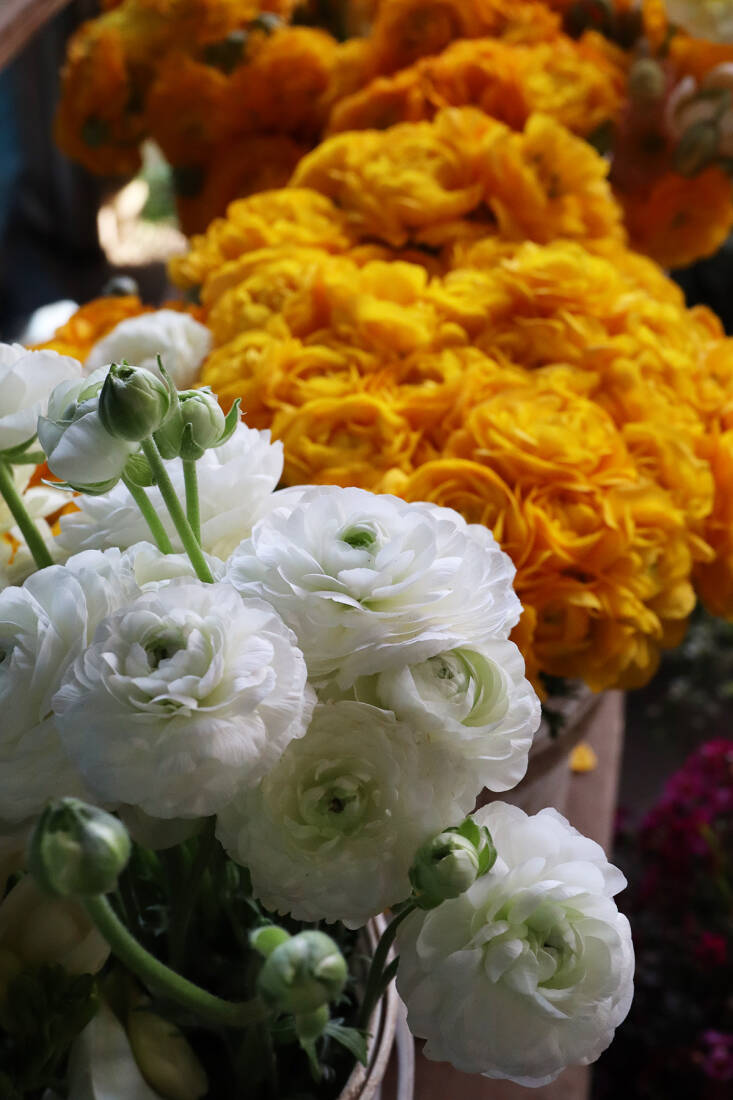
Buying flowers directly from any cut flower farm is a treat, and at Jaftha’s the same flowers cost around a third of local store-bought bouquets. For visiting Americans, there is an exchange-rate bonus: The prices are exceptionally favorable at a time when one US dollar buys around 18 South African rands. For example, at the time of writing, a R50 bouquet of vivid ranunculus is $2.65. And those flowers last up to 10 days, in fresh changes of water.
